6.3 million people, or over 30 percent of Sri Lanka’s population, are “food insecure” and require humanitarian assistance and of these, around 5.3 million people are either reducing meals or skipping meals, and at least 65,600 people are severely food insecure, revealed the joint FAO/WFP Crop and Food Security Assessment Mission (CFSAM) report 2022.
An overnight decision to transition from chemical fertiliser to organic fertiliser without an adequate alternative for farmers and stopping the fertiliser subsidies given by the government to the farmers left the agriculture sector in limbo, resulting two consecutive seasons of poor harvests in 2021-2022 leading to a nearly 40 percent drop in paddy production, posing a serious threat to food security in Sri Lanka.
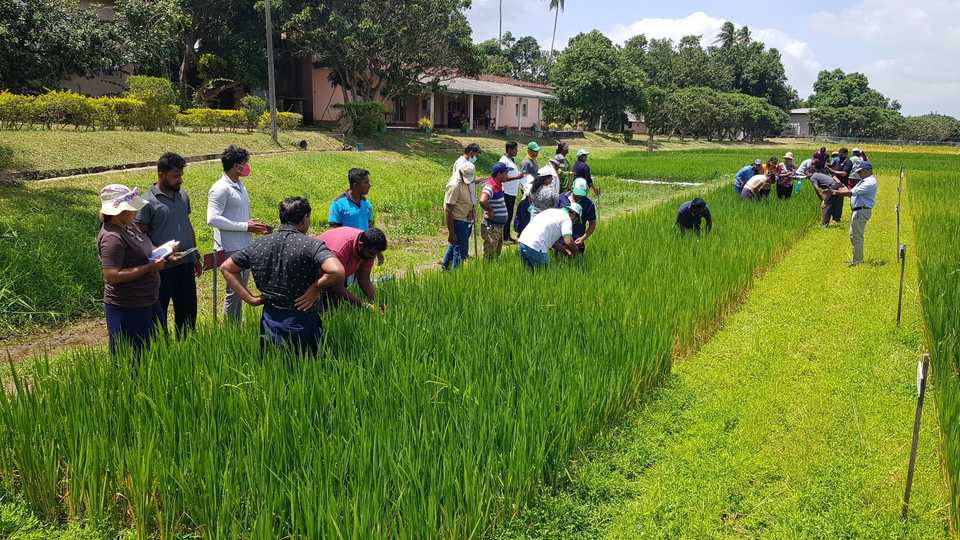
To tackle the vulnerability of the food security system in the country under the above circumstances, the Food and Agriculture Organisation of the United Nations (FAO) together with the government of Sri Lanka, and with €4 million in funding from the European Union (EU) launched an innovative project – RiceUP.
FAO together with the Ministry of Agriculture and the Mahaweli Authority of Sri Lanka (MASL) implements the project “Responding to the Economic Crisis: Protecting smallholder farmer livelihoods through safe and efficient use of fertiliser and quality seed for better productivity in paddy farming” which aims to respond to the economic crisis in Sri Lanka by protecting smallholder farmer livelihoods through safe and efficient use of fertiliser and quality seed for better productivity in paddy farming.
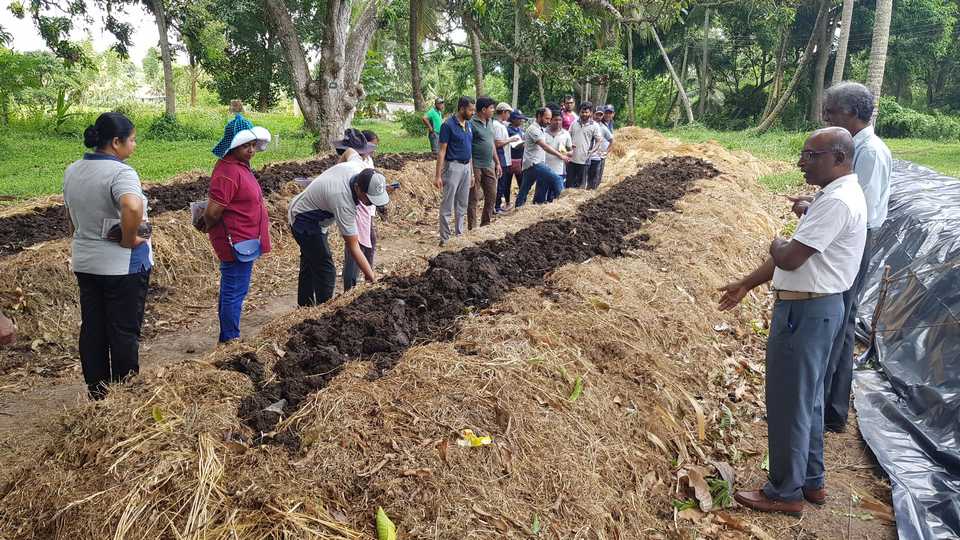
As a step in capacitating key stakeholders in the agriculture sector on best practices, FAO has embarked on a training programme for 300 Agriculture Extension Officers (AEOs) on Integrated Plant Nutrient Management (IPNM) across four key rice-growing districts in Sri Lanka namely: Ampara, Badulla, Hambantota, and Polonnaruwa. These AEOs will then act as facilitators for the Farmer Field Schools (FFS) where farmers will be trained to adopt good practices for sustainable rice cultivation. The training will equip the AEOs with the necessary skills and knowledge to guide paddy farmers on soil management and the optimal use of organic and chemical fertilisers to enhance crop yield while reducing chemical fertiliser dependency.
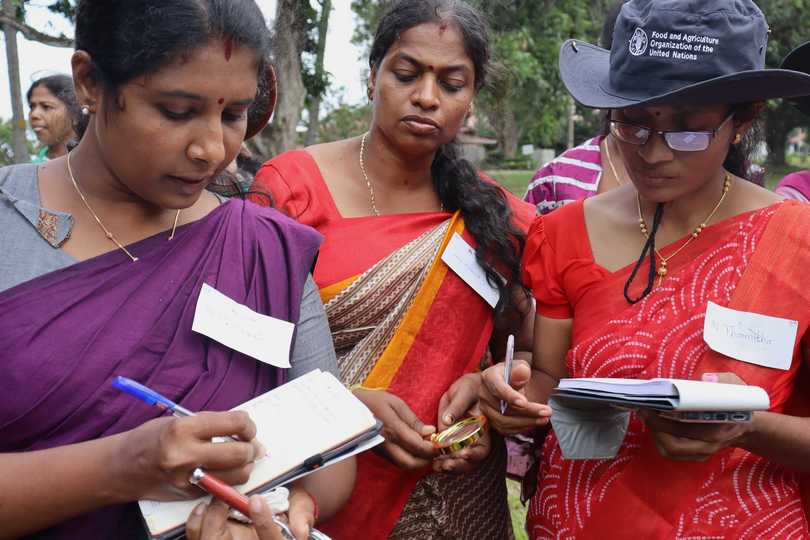
The Training of Facilitators (ToF) is being conducted at the Rice Research and Development Institute, Batalagoda from 19th July to 18th August 2023. 7,500 farmers are expected to directly benefit from the FFS facilitated by the trained AEOs. The Training Manual, outlining technical IPNM content and structured learning exercises has been developed collaboratively with international and national consultants of FAO, the Department of Agriculture, MASL, and the University of Peradeniya. This manual will be instrumental in guiding the implementation of both the ToF and the FFS.
IPNM is a sustainable land management practice that ensures soil quality, prevents degradation, and maximises crop productivity while safeguarding the environment. FAO’s induction to IPNM and the provision of urea fertiliser to smallholder farmers in selected districts, are a combined response to the challenges faced by farmers in accessing essential fertilisers and maintaining food security. By adopting IPNM and more efficient use of urea fertiliser, smallholder paddy farmers can reduce costs and improve productivity, leading to better profitability and resilience to future shocks.
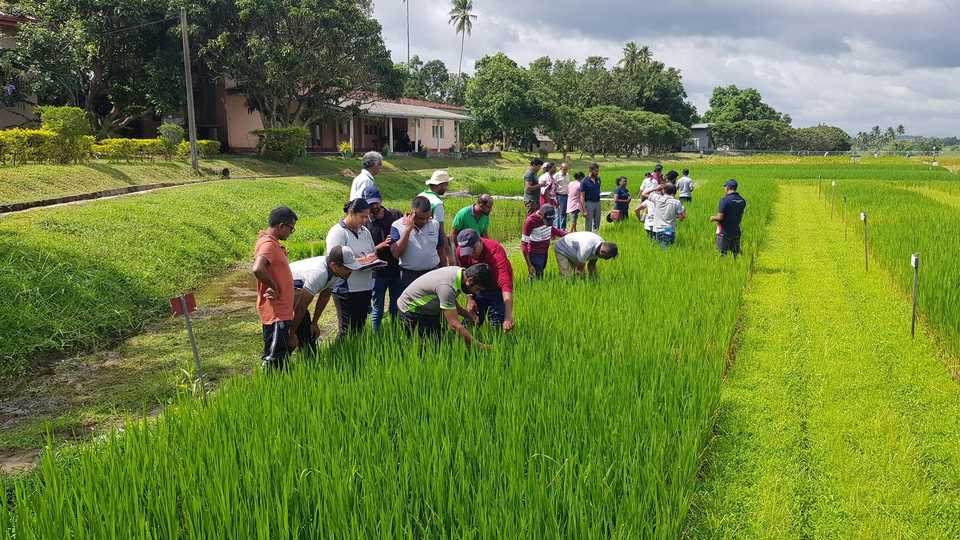
The trained AEOs will be instrumental in facilitating the FFS in these four districts guiding and training the farmers on IPNM practices. FFS is an effective farmer training approach which was introduced to Sri Lanka in 1994. In Sri Lanka, FFS has been widely adopted to promote sustainable farming practices, increase agricultural productivity, and address various agricultural and environmental challenges. The FFS typically involves a group of 25 farmers who come together to learn, share experiences, and collectively experiment with new agricultural techniques and sustainable management of soil while increasing the fertiliser efficiency. FAO expects that the AEOs will facilitate this process in FFS in their respective districts motivating the paddy farmers to raise productivity while collectively finding solutions to the problems in paddy cultivation.
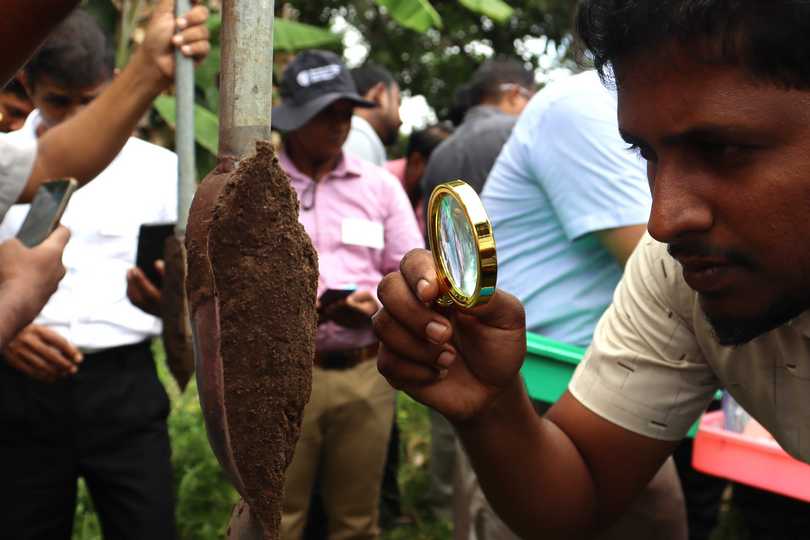
Through the implementation of sustainable farming practices, including the safe and efficient use of fertiliser and quality seeds, and promoting FFS to be adapted among the AEOs to promote IPNM strategy, RiceUP aims to enhance productivity, food security, and livelihoods in Sri Lanka’s paddy farming sector. Together with its partners, FAO remains dedicated to ensuring the long-term sustainability and resilience of Sri Lanka’s agriculture sector.



